China’s Rise: Needs Must When The Devil Drives.
While America, and Europe along with it, focuses on the Trump administration’s hawkish tendencies towards the Middle East, Russian influence, and far right fringes in Europe, China is changing the Eurasian geostrategic landscape, one infrastructure project at a time.
Through the Silk Road Economic Belt and the 21st-century Maritime Silk Road initiative, more commonly known as the Belt and Road Initiative (BRI), China seeks to intertwine the region using a wide assortment of infrastructure projects. With an investment of hundreds of billions of dollars, railroads, ports and fiber optic communication hubs are among the networks that will wind througout long standing trade routes, all built and controlled by Chinese government proxies. By various estimates, the BRI is one of the largest infrastructure and investment mega-projects in history, covering more than 68 countries, equivalent to 65% of the world’s population and 40% of the global GDP as of 2017.
As Iran and Saudi Arabia seek to create Shia and Sunni belts of control throughout the Middle East, on a much larger scale, China ultimately seeks to create a belt of control throughout Eurasia; one that controls the flow of products, data and eventually capital worldwide. If left unchallenged and unchecked, this may very well undermine the independence, economy and security of the Western sphere.
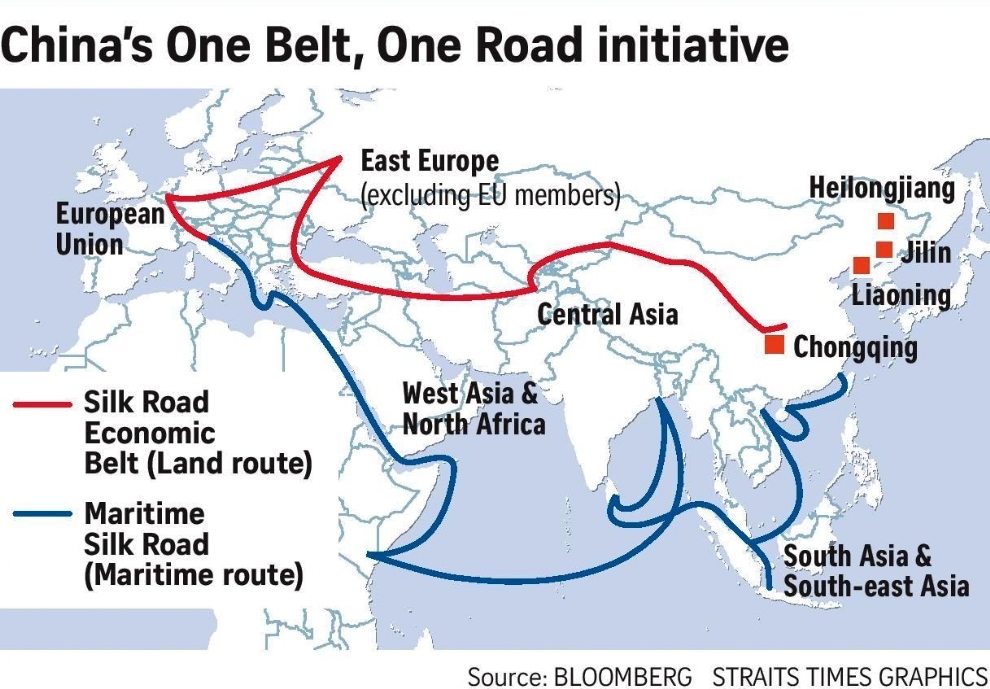
BRI as a government sponsored initiative was solidified in 2015, with a focus primarily on infrastructure investment, construction materials, railway and highway, automobile, real estate, power grid, iron and steel, with the strong backing of the Chinese Intelligence Service (CIS). Part of the BRI budget came from the Ministry for State Security (MSS), a subset of CIS, in addition to a variety of other agencies. As such, it received the full backing of President-for-Life Xi Jinping. Its leadership consists of members from the highest echelon of the Chinese military and intelligence community.
Each one of the BRI projects that the Chinese government has entered have shown not just clear economic benefits for China, but political and security benefits. In many cases, projects have directly functioned as an infrastructure investment-styled warfare strategy, with a goal of unseating existing power dynamics. For instance, in Nepal, the Chinese government has broken the Indian controlled monopoly on internet connectivity with its fiber optics and internet connectivity network. This in turn has lead to the Chinese government now being in a previously unimagined position to disrupt the Indian government controlled fuel and energy sales in Nepal.
In essence China seeks to control the dialog in emerging countries such as Nepal, by controlling the flow of information and goods.
With China controlling the flow of data, traffic and business opportunities in developing nations, it can also control the dialog, and thus the future of these nations. The most important aspect of this is China’s interest in controlling access to data, something already quite apparent when it forced US computer and phone manufacturer Apple to host its privacy-sensitive Cloud data in server farms in mainland China. By introducing the main data pipelines to these fragile could-be democracies, China can ensure that its future residence and dominance in such countries remains safeguarded.
Seaport for Sale – “We’ll Take It”
China’s BRI project, which has touched upon countries from Afghanistan to Kenya, and Thailand to Turkey, has reached the inner sanctums of Western Europe. In Sweden, despite protests from military intelligence and civilian security agencies, a Chinese business consortium – essentially the Chinese government – offered millions to buy the Lysekil seaport. Recently modernized by the Swedish military and local council, Chinese officials had expressed interest in expanding it, possibly making it one of Western Europe’s largest seaports. The port project was dubbed the “Troy of Scandinavia” before public outcry in Sweden over national security and environmental concerns forced cancellation of the deal at the last minute.
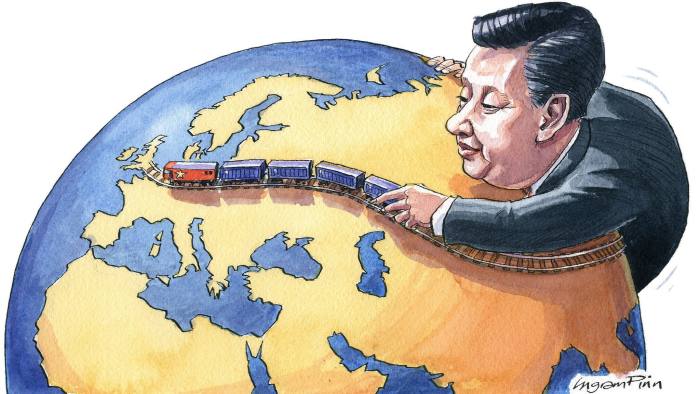
In Greece, Chinese government BRI investments made such a significant impact to the local economy that the Greek government chose to override European Union humanitarian rights concerns in order to gain favor with the Chinese. The result: Chinese controlled companies bought up controlling parts of the historic Greek seaport of Piraeus, looking to make it the “dragon head” of the new Silk Road into Europe.
In France, and Eastern Europe, China has sought to buy up controlling interests in railroad hubs and rail routes. In February, the French government blocked a sale that would have given a Chinese state-owned consortium, one that already owns 49.99 percent, majority control over Toulouse international airport.
Fast becoming a “continental consolidation and distribution hub for Central and Eastern Europe,” Duisburg, Germany has been transformed by Chinese investment in its rail system. Considered a crucial hub on China’s Silk Road, Duisport Rail receives 20 trains a week from various destinations in China.
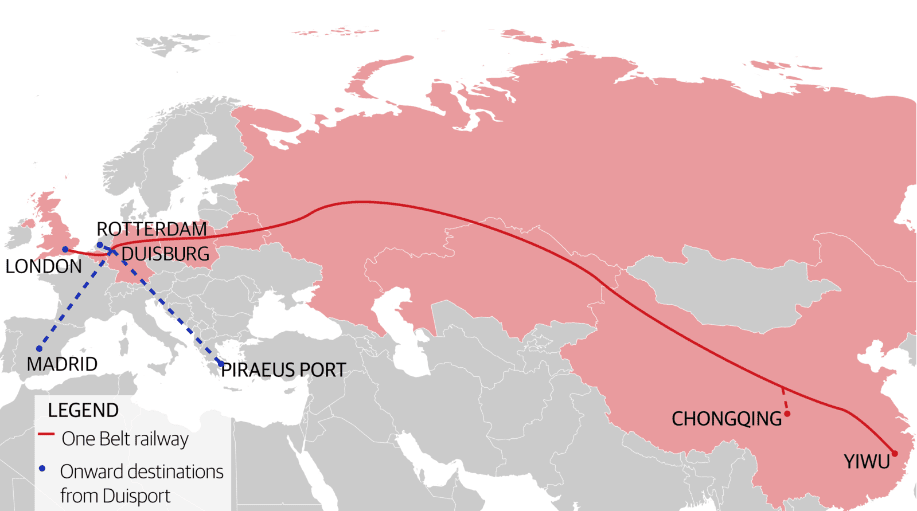
No doubt that as China continues to expand into Europe it hopes that by controlling the rails it will control the flow of goods in a cost efficient manner such that transport by sea and air cannot compete.
Little doubt remains that while BRI short term expenditures are immense, the long term geostrategic payout in both economic and political gains to the Chinese will be even greater. Yet, will a globally dominant China endanger Western interests, or help emerging markets?
Overall, the Chinese BRI approach stands in stark contrast to the existing Western approach to dominating emerging markets in some very essential points. While the Western approach, deeply rooted in the mentality of Anglo-imperial history, tends to place great emphasis on knowledge and skill transference to the local population, with projects being locally managed, China’s approach does not. Considered a low priority, Chinese backed projects tend to exhibit strict top-down control, with little knowledge and skills transferring to local communities.
More seriously, Western projects, both public and private, must largely adhere to a wide array of human rights interests, via human rights group review, human rights laws and public opinion. China largely does not.
Quintessentially, America, and its Western allies, may soon find China having become a turn-key replacement to Western dominance in nearly everything but pop culture, an area in which the West, especially the US, appears to still reign supreme.
John Sjoholm, Lima Charlie News, with Anthony A. LoPresti
John Sjoholm is Lima Charlie’s Middle East Bureau Chief, managing editor, and founder of the consulting firm Erudite Group. A seasoned expert on Middle East and North Africa matters, he has a background in security contracting and has served as a geopolitical advisor to regional leaders. He was educated in religion and languages in Sana’a, Yemen, and Cairo, Egypt, and has lived in the region since 2005, contributing to numerous Western-supported stabilisation projects. He currently resides in Jordan. Follow John on Twitter @JohnSjoholmLC
Lima Charlie World provides global news, featuring insight & analysis by military veterans, intelligence professionals and foreign policy experts Worldwide.
For up-to-date news, please follow us on twitter at @LimaCharlieNews
In case you missed it:

![Image Is China's Belt and Road Initiative signaling the West's setting sun? [Lima Charlie News]](https://limacharlienews.com/wp-content/uploads/2018/04/Is-Chinas-Belt-and-Road-Initiative-signaling-the-Wests-setting-sun-1.png)
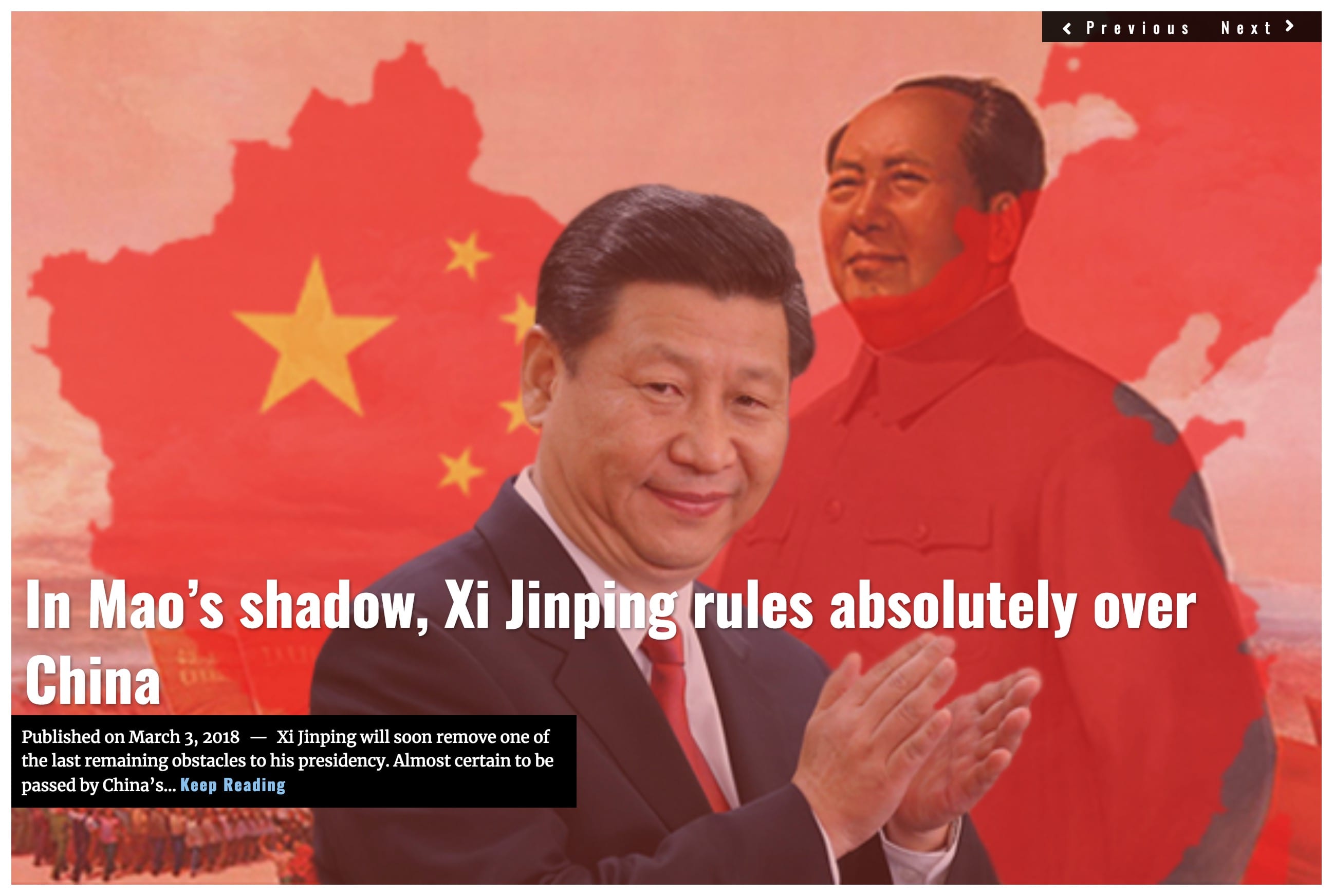
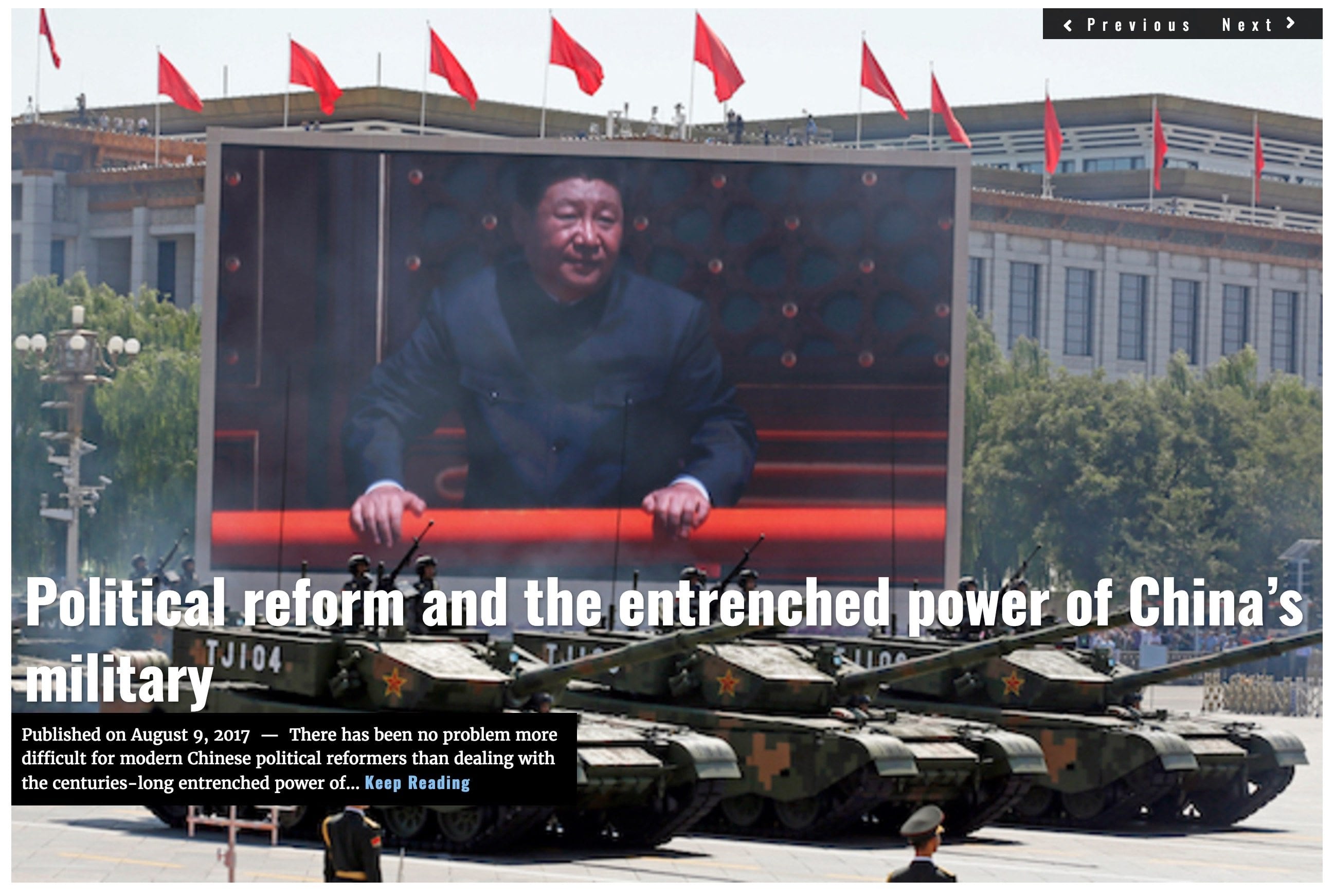

![Image Drop in oil prices may trigger unintended consequences [Lima Charlie News]](https://limacharlienews.com/wp-content/uploads/2018/11/main_900-480x384.jpg)
![image Resistance mounts against China's President Xi Jinping [Lima Charlie News][Photo: Johannes Eisele / AFP]](https://limacharlienews.com/wp-content/uploads/2018/08/Resistance-mounts-against-Chinas-President-Xi-Jinping-480x384.jpg)
![Image Little choice for Russia and China but to link up [Lima Charlie News]](https://limacharlienews.com/wp-content/uploads/2018/09/headlineImage.adapt_.1460.high_.russia_china_opinion_052114.1400674740238-480x384.jpg)


![Blossoming Russo-Turkish alliance leaves U.S., NATO behind [Lima Charlie News]](https://limacharlienews.com/wp-content/uploads/2019/07/Russia-Turkey-alliance-leaves-U.S.-NATO-behind-480x384.png)

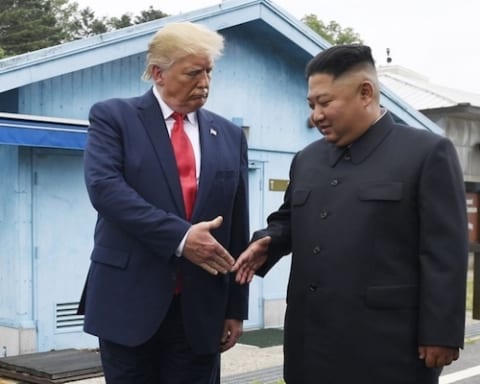
![Image Drop in oil prices may trigger unintended consequences [Lima Charlie News]](https://limacharlienews.com/wp-content/uploads/2018/11/main_900-150x100.jpg)
![image Resistance mounts against China's President Xi Jinping [Lima Charlie News][Photo: Johannes Eisele / AFP]](https://limacharlienews.com/wp-content/uploads/2018/08/Resistance-mounts-against-Chinas-President-Xi-Jinping-150x100.jpg)